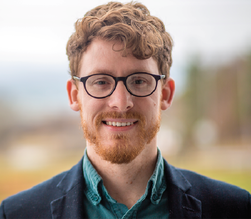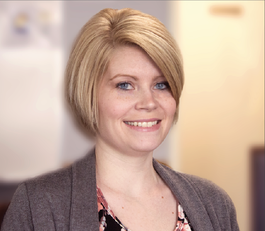|
Program support has been given a boost recently, since Aaron Oda and Brandi Smith have joined the organization.  Aaron Oda, Program Case Manager Aaron Oda, Program Case Manager A quick stroll through the Bender building during normal business hours reveals an inviting space of open office doors and the sound of light music and conversations hanging in the air. Program participants and residents come and go throughout the day, sometimes for a required meeting and other times just to say hello to the case managers, whose offices are located here, apart from the main residence. I sat down recently with case managers Brandi Smith and Aaron Oda, who are the newest members of the Gemeinschaft Home team, to talk about their backgrounds and current role in the organization. What I discovered in these two conversations was a profound commitment to the individuals we serve and an equal desire to support the community at large. While their own journeys to Gemeinschaft Home began in different places, and included various kinds of training and work experience, they share a philosophical approach in their current work and interactions with program participants. Smith began working at Gemeinschaft Home in September 2017, as case manager for the Day Reporting Center (DRC). Oda started in March 2018, as case manager for the DOC reentry program, after transitioning from a part-time position (shift supervisor) that he held since October 2016. Neither Smith nor Oda had ever anticipated working with (ex)offenders, prior to coming to Gemeinschaft Home, even though both had been adamant for some time about working in a career focused exclusively on helping others.  Brandi Smith, Day Report Case Manager Brandi Smith, Day Report Case Manager Originally from Indiana, Oda worked as an audio engineer for a recording studio after college, a job that was creative, but afforded him little opportunity to interact with people. Smith, who grew up in nearby Alleghany County, worked in a bank, which involved people-oriented tasks, but few meaningful connections with others. Oda eventually moved to Georgia to live and work in an intentional community, where he worked with refugees, and later became involved with peacebuilding and educational initiatives that led him to Eastern Mennonite University. Smith went back to school full-time, first in the human services program at Blue Ridge Community College and later in social work at Mary Baldwin College. They discovered Gemeinschaft Home by way of acquaintances. Oda studied restorative justice with board member Carl Stauffer at EMU’s Center for Justice and Peacebuilding (CJP), where he first learned about Gemeinschaft Home. The organization’s vision resonated with his interest in and work with refugees, particularly victims of trauma. Like refugees, ex(offenders) represent a “population that is not really treated with dignity in our communities and on a national scale,” Oda says. Smith studied human services with residence life coordinator and case manager John Butler at Blue Ridge Community College, who recommended she apply for the position at Gemeinschaft Home. While having no prior experience with (ex)offenders, Smith points out that she was particularly eager about the opportunity. “I have a heart for it, because my brother is an addict and has been in and out of jail,” adding that the experience with her brother has significantly shaped how she approaches her job. Smith stresses that interventions with her clients must be wholistic. “They don’t just come for drug screens. They come to work on themselves from the inside out,” she explains, “to ask questions like ‘What caused this? How do I prevent this from happening in the future?’” And none of this is a solitary act, according to Smith, but requires a social support structure that includes family members. “How can we help you help them?” is the framing question in each case. Smith and Jumar Peterson are currently developing a new program curriculum, Connection Points, to educate the community about steps family members can take to support their loved ones who are struggling with cycles of addiction and incarceration. Oda employs a wholistic approach as well, one that necessitates active engagement from the resident (client), stating, “I always try to do some sort of creative activity like writing exercises, drawing art, because it is a way for them to own the process of what they are doing—and not just have someone talk at them. They have to know that they are part of that process of recovery.” Oda encourages their active role, telling each individual from the start: “This is going to be a reflective space, for you to look into the mirror. This is a place for you to start unpacking your stories, start unpacking the traumas.” Brandi Smith and Aaron Oda embody a gracious spirit and progressive vision for their work at Gemeinschaft Home. Our community is fortunate to welcome them, and we look forward to our future collaborations! Comments are closed.
|
Archives
August 2023
|